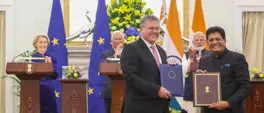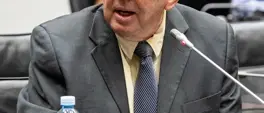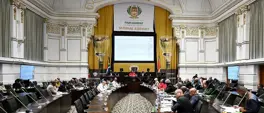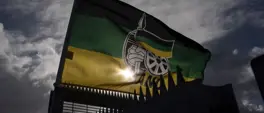Independent operators (as alternative to big supermarket chains) a huge force in SA retail economy
Paula Luckhoff
30 September 2025 | 18:35A new report from Trade Intelligence shows that the formal independent retail and wholesale sector accounts for almost a third of the fast-moving consumer goods (FMCG) market.
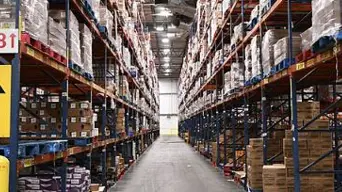
Generic image of food warehouse. Wikimedia Commons/Maryland GovPics
The Money Show's Stephen Grootes is joined by Andrea Slabber, Insights Lead at retail research hub Trade Intelligence.
Have you ever wondered where informal traders or spaza shops get their goods and produce from?
Well, it appears that it is independent retailers keeping these operations in business - these are outlets not connected to JSE-listed supermarkets.
South Africa's formal independent retail and wholesale sector accounts for almost a third of the fast-moving consumer goods (FMCG) market.
And this sector is currently valued at R268 BILLION, according to the latest 'Formal Independent Channel' report by Trade Intelligence.
The data also shows that 11% of South African households shop in the sector.
"(It has) the same reach as Clicks, nearly four times Woolworths, and not far off Checkers at 18%. With continuous investment in store layouts, merchandising and service, the old perception of ‘cash & carry’ as purely trader-focused is fading fast'.
Trade Intelligence
Independent wholesalers (selling in bulk to businesses such as hospitality and informal traders) and hybrids (serving both traders and household shoppers) are a key route into the informal economy, Trade Intelligence explains.
'Independent wholesale is key to the economy because it is the supply chain that feeds the informal market – from tuck shops and spazas to schools and midi-wholesalers', says Jad Pereira, CEO of Unitrade Management Services.
When it comes to South Africa's informal traders, around 95% of them source their stock through independent wholesalers.
This is a pattern in the context of African countries, remarks Trade Intelligence's Andrea Slabber.
"Independent trade or 'informal trade' is substantial on the continent as a whole... just look at home where it comprises about a third of FMCG business."
Andrea Slabber, Insights Lead - Trade Intelligence
"It certainly serves the traders, where remember a lot of also households buy their groceries; and many of these independent retail businesses are highly sophisticated with sat-run warehouses and so on".
Andrea Slabber, Insights Lead - Trade Intelligence
To hear more from Slabber, scroll back up to the audio player
Get the whole picture 💡
Take a look at the topic timeline for all related articles.

